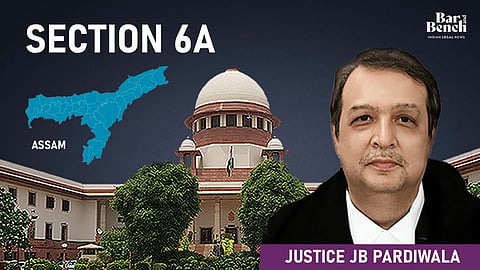Justice JB Pardiwala of the Supreme Court today held that Section 6A of the Citizenship Act of 1955, which enables the grant of Indian citizenship to immigrants covered by the Assam Accord, has become invalid with the efflux of time [In Re: Section 6A Citizenship Act 1955].

